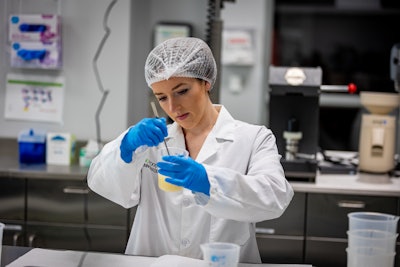
The Bezos Center for Sustainable Protein was recently launched at North Carolina State University (NC State).
The center will work with partners from academia and the food industry to research, create and commercialize new technologies, provide training and learn more about consumer protein preferences.
The US$30million center’s construction was funded by investor Jeff Bezos’s philanthropic program known as the Bezos Earth Fund. Additionally, Bezos’s fund has committed US$100 million to establish a network of research and development centers focused on sustainable protein alternatives.
“As a land-grant university in a state with significant animal agriculture, NC State is uniquely positioned to help shape the future of sustainable food production,” said NC State Chancellor Randy Woodson.
“We’re thankful for the support from the Bezos Earth Fund that will help drive economic and workforce development in this critical area of sustainable protein production in order to feed a growing world population in an economically and environmentally sustainable way.”
More about the center
The grant will fund research on three types of sustainable proteins: plant-based products, precision fermentation to produce proteins and nutrients for food formulations and cultivated meat grown from animal cells.
The center’s research and development team will focus on making manufacturing processes for sustainable protein products more efficient and less costly, as well as train the center’s faculty and students on innovation. Its workforce development team aims to educate and train students and personnel on how to work with advanced food technologies.
The hub’s capacity building team will reach out to community stakeholders, such as consumers, farmers and chefs, to understand perceptions, preferences and expectations of sustainable protein foods, then use those results to fuel outreach strategies.
NC State is working with academic partners, including North Carolina’s Agricultural and Technical State University, the University of North Carolina at Pembroke, Duke University and Forsyth Tech Community College, on the center’s research, workforce development and community engagement efforts.
Additionally, over 20 industry partners have plans to contribute to the center, which will help accelerate student internships and mentorships.



















